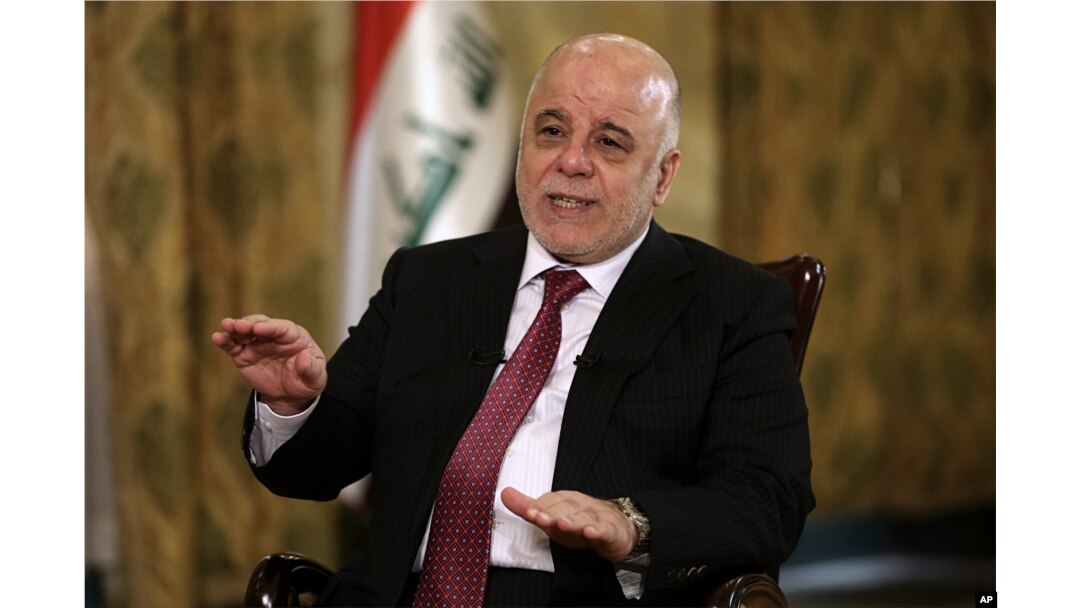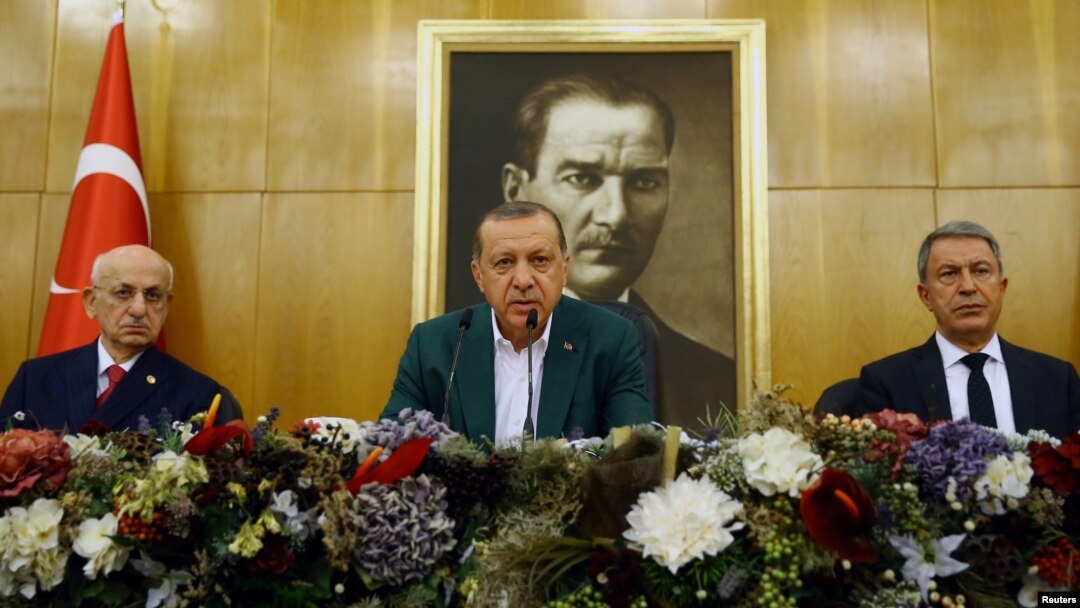Turkish President Tayyip Erdogan will meet Iraqi Prime Minister Haider al-Abadi this week to discuss their concerns about an independence referendum in Iraq's Kurdish region.
Turkey, the United States and other Western powers have advised authorities in the semi-autonomous region to cancel the vote, worrying that tensions it would generate might act as an unwelcome distraction from the war on Islamic State in Iraq and Syria.
With the largest Kurdish population in the region, Turkey also fears that a "Yes" vote would fuel separatism in its southeast, where militants of the outlawed Kurdistan Workers Party (PKK) have waged an insurgency for three decades.
Kurdish leader Massoud Barzani said on Friday the referendum would go ahead as planned on Sept. 25.
Speaking to reporters on Sunday before departing for New York to attend the U.N. General Assembly, Erdogan said Ankara and Baghdad had the same view regarding the referendum.
"We will have a meeting with Mr. Abadi in the United States, and from what we can see our goal is the same. Our goal is not dividing Iraq," said Erdogan, who earlier said that Barzani's decision to not postpone the vote was "very wrong."
Late on Saturday Turkish Prime Minister Binali Yildirim said the referendum was an issue of national security and Turkey would take any necessary steps in response.
In Istanbul, close to a thousand people gathered to protest the inclusion of Kirkuk in the referendum, at an event organized by the nationalist opposition MHP party.
Kirkuk, an oil-rich province claimed by authorities in both Baghdad and the Kurdish region, was included after its governor, Najmaddin Kareem, voted in favor of taking part.

Iraq's Prime Minister Haider al-Abadi speaks during an interview with The Associated Press in Baghdad, Iraq, Sept. 16, 2017.
Iraq's parliament voted on Thursday to remove the governor from office following a request from Abadi, according to several lawmakers present, a move Barzani condemned.
Last month, MHP leader Devlet Bahceli said the referendum should be viewed by Ankara as a reason for war "if necessary," but the prime minister dismissed the comments.
Bahceli's ideas reflect those of a segment of Turkish society fiercely opposed to the idea of an independent Kurdistan and supportive of Iraq's Turkmen ethnic minority, which has historical and cultural ties to Turkey.
With Barzani pressing on with the referendum, Erdogan said the Turkish government had brought forward planned national security council and cabinet meetings to Sept. 22 and that Turkey would announce its position on the referendum afterwards.
Turkey has, however, built good relations with Barzani's administration, founded on strong economic links and shared suspicions of other Kurdish groups and Iraq's central government.
The Kurdish Regional Government, led by Barzani's KDP party, exports hundreds of thousands of barrels of oil every day to world markets via Turkey.
Iraqi President Fuad Masum on Sunday called on the country's leading politicians to start urgent dialogue to defuse tensions linked to the referendum plans.
Masum, a Kurd, holds a largely ceremonial position under the Iraqi federal power-sharing regime, which concentrates executive powers in the hands of the prime minister, a Shi'ite.


